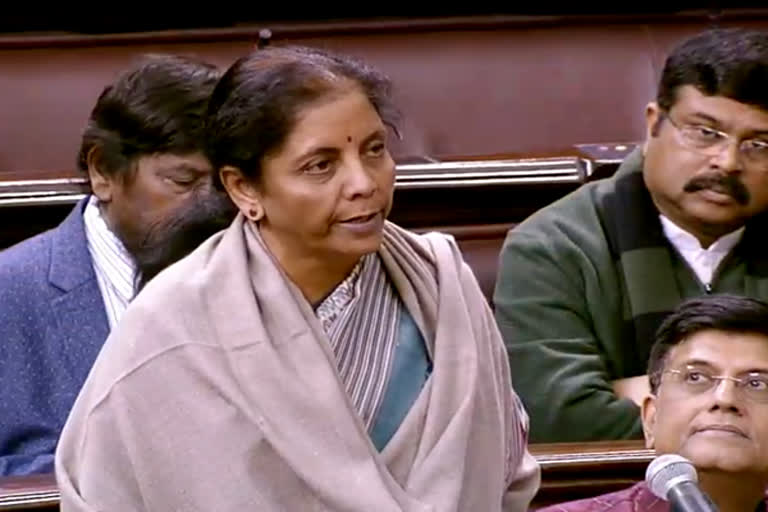New Delhi: Economic Survey tabled by Finance Minister Nirmala Sitharaman in Parliament today states that the country needs an investment of $1.4 trillion in the next five years to build a modern infrastructure for the country. The Survey states that a host of projects in highways, railways, civil aviation, telecom and housing sector will attract the investment both from the public and private sector.
The economic survey that gives a comprehensive picture of the country’s economic health and financial position of the government emphasised that a massive investment in infrastructure sector is necessary for achieving rapid economic growth that is essential to make the country a $5 trillion economy by 2024-25.
“To achieve GDP of USD 5 trillion by 2024 – 2025, India needs to spend about USD 1.4 trillion (Rs.100 lakh crore) over these years on infrastructure so that lack of infrastructure does not become a constraint to the growth of Indian economy,” said chief economic advisor Krishnamurthy Subramanian in the economic survey.
“Power shortages, inadequate transport and poor connectivity affect overall growth performance,” he said in the survey adding the country recently launched the National Infrastructure Pipeline (NIP) for the period FY 2020-2025 as quality infrastructure is essential for the growth.
Read more:GDP growth expected to strongly rebound to 6-6.5 pc in FY'21: Eco Survey
Infrastructure development was the overarching theme of the maiden budget presented by finance minister Nirmala Sitharman in July last year. She emphasised on building highways, railway corridors, waterways under Prime Minister Narendra Modi’s flagship schemes such as Bharat Mala and Sagar Mala that are aimed at building integrated infrastructure in coastal areas and around major industrial belts.
According to the survey, infra projects worth Rs 42.7 lakh crore are under various stages of implementation, which is nearly 42% of the total projects envisaged by the government.
As per the National Infrastructure Pipeline (NIP), Central Government and state governments bear the equal burden of the project cost, 39% each private sector is expected to provide the remaining funding of 22%.
However, arranging this massive fund to completely transform the country’s infrastructure is easier said than done.
“Financing of the National Infrastructure Pipeline will be a challenge,” observed the survey, hoping that a host of well prepared projects will attract funding from the central and state governments, urban local governments, banks and financial institutions, private equity funds and private investors, both local and foreign.
(Article by Senior Journalist Krishnanand Tripathi)



